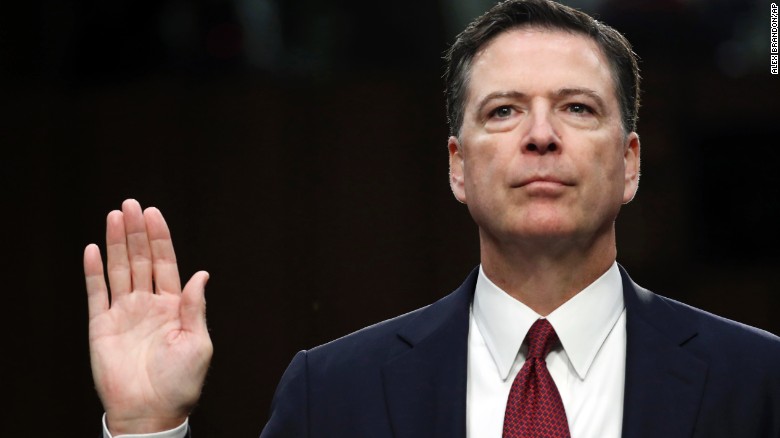
Here are the lessons I learned from this week. And I wish more people would talk about them, because I believe they say a lot more about us than anybody on camera.
We have completely given up on transparency in government.
I'm stunned by the constant characterization of Comey's actions as "leaks." The director of a "three letter" agency, a career public servant, released a complete and unabridged first-hand account, with full personal attribution of matters that he believed to be in the public interest. When did we become so cynical that an act of transparency is viewed with suspicion? We have the Freedom of Information Act, which FORCES government agencies to release information just like this. And, when a judge enforces it, we celebrate it as a coup. Even sympathetic coverage is using the "l-word".
What Comey did that was so stunning, that shook us to the point of suspicion, was to break ranks, to drop the "party line" and put disclosure of government activities ahead of, quite literally, his job. It's sad to see that such a simple act would come as a surprise.
We are living in a sort of "truth inversion"
In weather terms, an inversion is when a layer of air is trapped beneath another layer, preventing natural circulation and pollutants from getting out. In social terms, the truth has been trapped beneath a layer cynical and self-serving spin for so long that we no longer accept the truth, on its face, as good enough. Instead we expect proof, beyond an unreasonable doubt, that the speaker isn't lying.
If our court system worked that way, no witness would ever be considered credible. Yet, in today's politics, we can dismiss the word of a career law enforcement professional, placed in positions of the highest public trust again and again, simply on the basis that nobody can prove he isn't lying. There is no longer an assumption of truthfulness, from government, from media sources, or any other speaker. And that - if you think about it - puts our entire reality into subjective doubt.
We are almost pathologically protective of our reality bubble.
This is nothing new. Many studies and scholarly papers have been written about the tendency of people to reject new information, even if it is better or more likely to lead to success, in favor of known, flawed information with which we are comfortable. But we have turned this tendency, through social media and selective, tribal consumption of information into something fundamentally destructive. We have managed to build massive, mutually exclusive information bubbles that are self-feeding, self-reinforcing, and becoming increasingly removed from objective reality (there is actually such a thing).
People supportive of the president came away dismissing Comey's testimony (and his motives). People opposed to the president took everything he said as gospel truth. It can't be both, yet both narratives are carrying equal weight in the aftermath.
The most disappointing conversations I've had lately have been with fellow liberals who are literally angry about the inclusion of "conservative" hosts "taking over" the liberal-leaning channel MSNBC. We have been railing together against "fake news" for the better part of a year. But all of a sudden, a network whose editorial and production values have been considered trustworthy by these friends is now suspect, solely because a person is sitting in front of a camera who may have a differing philosophy of government. As if this sole fact makes a person less capable of informing the public. We've got to stop this.
Comey's testimony may or may not, in your view, be game-changing. But we need to pause and look critically at WHY we are coming to one conclusion or another. We deserve a transparent, honest, and objective government and public officials. But we will only get those things if we demand them. And, frankly, we need to learn again how to recognize it when we see it.
No comments:
Post a Comment